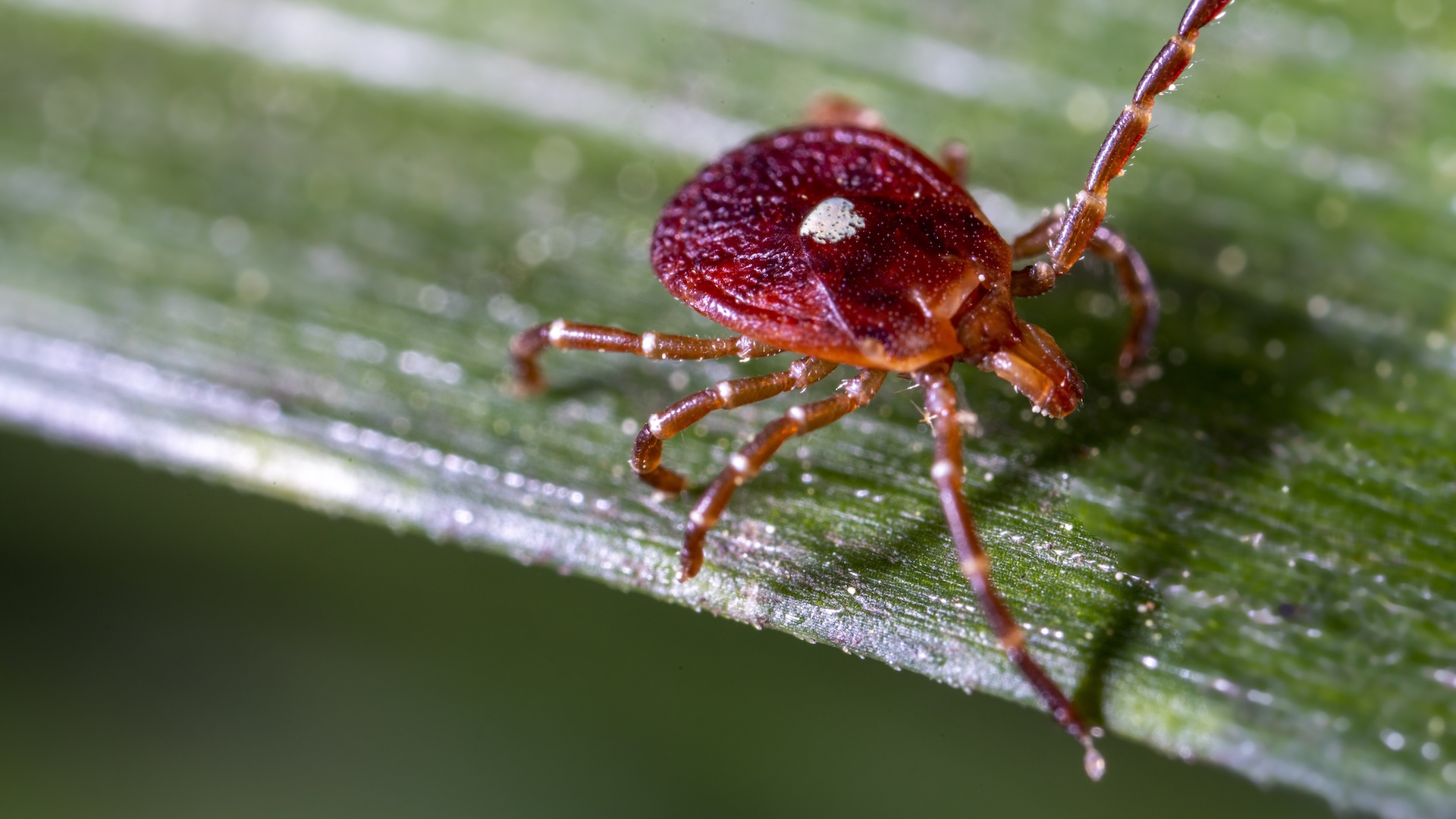New Jersey man dies from meat allergy triggered by tick bite
A man in New Jersey has died from a meat allergy that people can develop after being bitten by certain tick species.

Get the world’s most fascinating discoveries delivered straight to your inbox.
You are now subscribed
Your newsletter sign-up was successful
Want to add more newsletters?

Delivered Daily
Daily Newsletter
Sign up for the latest discoveries, groundbreaking research and fascinating breakthroughs that impact you and the wider world direct to your inbox.

Once a week
Life's Little Mysteries
Feed your curiosity with an exclusive mystery every week, solved with science and delivered direct to your inbox before it's seen anywhere else.

Once a week
How It Works
Sign up to our free science & technology newsletter for your weekly fix of fascinating articles, quick quizzes, amazing images, and more

Delivered daily
Space.com Newsletter
Breaking space news, the latest updates on rocket launches, skywatching events and more!

Once a month
Watch This Space
Sign up to our monthly entertainment newsletter to keep up with all our coverage of the latest sci-fi and space movies, tv shows, games and books.

Once a week
Night Sky This Week
Discover this week's must-see night sky events, moon phases, and stunning astrophotos. Sign up for our skywatching newsletter and explore the universe with us!
Join the club
Get full access to premium articles, exclusive features and a growing list of member rewards.
A New Jersey man has died in the first documented fatal case of alpha-gal syndrome, a meat allergy triggered by tick bites.
In September 2024, the 47-year-old man collapsed and fell unconscious around four hours after eating a hamburger at a barbeque, doctors wrote in a report of the case. Despite attempts by the man's son and paramedics to resuscitate him, he was declared dead later that night after being transferred to a hospital.
The case report authors, who published details of the case Thursday (Nov. 13) in The Journal of Allergy and Clinical Immunology in Practice, wrote that it was important to document this deadly case because many U.S. doctors remain unaware of alpha-gal syndrome — even as the ticks that most often spread the disease move into new territory.
"We would argue that there is a major need for public education in areas where the tick is increasing," they said.
Alpha-gal is a sugar found in all mammals except for humans and other primates. In alpha-gal syndrome, the human immune system overreacts to this sugar, causing symptoms that can range from mild to life-threatening. These symptoms can include hives, vomiting, stomach pain, difficulty breathing, blood-pressure dips, dizziness, and in the most severe cases, anaphylaxis.
Tick bites can trigger this allergy to alpha-gal because they expose a person to the sugar via the tick's spit, setting off a chain reaction that leads to a hypersensitivity to the sugar — in other words, an allergy. So the next time a person consumes a product containing alpha-gal, their body overreacts, even if they safely ate that product many times prior to being bitten by a tick.
Beef, pork, lamb, venison and rabbit meat carry a high concentration of alpha-gal. In addition, milk products and products derived from mammals — such as gelatin, lard and gravy — can also contain enough of the sugar to trigger reactions in some people with the syndrome. Non-mammalian animal products, including poultry, eggs, fish and seafood, do not contain alpha-gal.
Get the world’s most fascinating discoveries delivered straight to your inbox.
In the New Jersey man's case, his alpha-gal syndrome may have gone unnoticed because his family typically ate chicken, the case report suggests.
A few weeks prior to his death, the man went camping with his family, and on the trip, they ate beef steak for dinner. About four hours later, he developed severe abdominal discomfort and was "writhing in pain, having diarrhea and vomiting." His symptoms resolved a few hours later and he felt well enough the next day to go on a 5-mile (8 kilometers) walk and eat breakfast.
Two weeks later, after the camping trip concluded, the man and his wife attended a barbeque, where he ate a burger. Again, he felt fine for about four hours before developing gastrointestinal distress, and from there, his symptoms quickly progressed to anaphylaxis.
"The fact that severe abdominal pain without any other allergic features can be an important and indeed dangerous form of anaphylaxis is not well recognized," the case report authors wrote. When the man's body was examined shortly after death, the autopsy didn't turn up clear signs of anaphylaxis, and it was initially documented as a "sudden unexplained death."
After his death, the man's wife asked her friend Dr. Erin McFeely, a New Jersey-based pediatrician and co-author of the case report, to review the autopsy report. That review raised a question as to whether alpha-gal syndrome might be an explanation, and they got in touch with experts at the University of Virginia (UVA) School of Medicine in Charlottesville to review the case further.
An analysis of the man's blood revealed he carried antibodies against alpha-gal, as well as extremely high levels of tryptase, an enzyme released by immune cells into the bloodstream during allergic reactions. The UVA team asked the man's wife if he'd recently been bitten by ticks, and she noted he hadn't been bitten by ticks in the past year but had been bitten by chiggers.
Chiggers are a species of mite, not a type of tick, but the study authors noted that people sometimes think they've been bitten by chiggers when they've actually been bitten by the larvae of lone star ticks (Amblyomma americanum). Multiple tick species can spread alpha-gal syndrome, but the lone star tick is the most frequent culprit in the U.S.
Notably, white-tailed deer (Odocoileus virginianus) are a key host for these ticks. As the deer population has been exploding in New Jersey, the report authors flagged this as one factor driving up tick populations.
"The significance of this case is that a large and increasing population of the United States is being exposed to the Lone Star tick, both because the tick is moving north and because there are now large populations of deer in many states," they wrote. They added that the particular symptoms of an alpha-gal reaction might not alert patients to the fact it's an allergic reaction, and that could delay much-needed medical care.
"Even though the first episode scared the patient, neither he nor his wife considered it to be 'anaphylaxis,' and therefore, they did not connect the pain with the beef eaten 4 hours earlier," they wrote. "Thus, he had no reason to avoid eating a hamburger 2 weeks later."
This article is for informational purposes only and is not meant to offer medical advice.

Nicoletta Lanese is the health channel editor at Live Science and was previously a news editor and staff writer at the site. She holds a graduate certificate in science communication from UC Santa Cruz and degrees in neuroscience and dance from the University of Florida. Her work has appeared in The Scientist, Science News, the Mercury News, Mongabay and Stanford Medicine Magazine, among other outlets. Based in NYC, she also remains heavily involved in dance and performs in local choreographers' work.
You must confirm your public display name before commenting
Please logout and then login again, you will then be prompted to enter your display name.
 Live Science Plus
Live Science Plus










